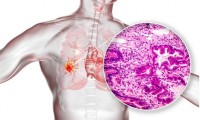-
Innovate UK awards ten projects over £6m to develop new clinical tools for dementia
- Source: drugdu
- 277
- March 26, 2024
-
AI Predicts Cancer Spreading To Brain from Lung Biopsy Images
- Source: drugdu
- 379
- March 23, 2024
-
Birmingham’s VR-assisted training centre for excellence to support future vaccine makers
- Source: drugdu
- 225
- March 20, 2024
-
NHS to roll out AI to improve waiting times and reduce missed appointments
- Source: drugdu
- 271
- March 19, 2024
-
Phesi’s AI-driven Trial Accelerator platform contains over 100 million patients
- Source: drugdu
- 318
- March 16, 2024
-
Swedish researchers develop new AI computer model to detect lymphatic cancer
- Source: drugdu
- 296
- March 16, 2024
-
New action to tackle ethnic and other biases in medical devices
- Source: drugdu
- 360
- March 13, 2024
-
First Ever Prototype Applies AI to Colorectal Diagnosis
- Source: drugdu
- 286
- March 12, 2024
-
The roadmap for generative AI in the pharma industry
- Source: drugdu
- 295
- March 9, 2024
-
Researchers aim to ensure future AI healthcare monitoring systems are free of gender bias
- Source: drugdu
- 185
- March 8, 2024
your submission has already been received.
OK
Subscribe
Please enter a valid Email address!
Submit
The most relevant industry news & insight will be sent to you every two weeks.













